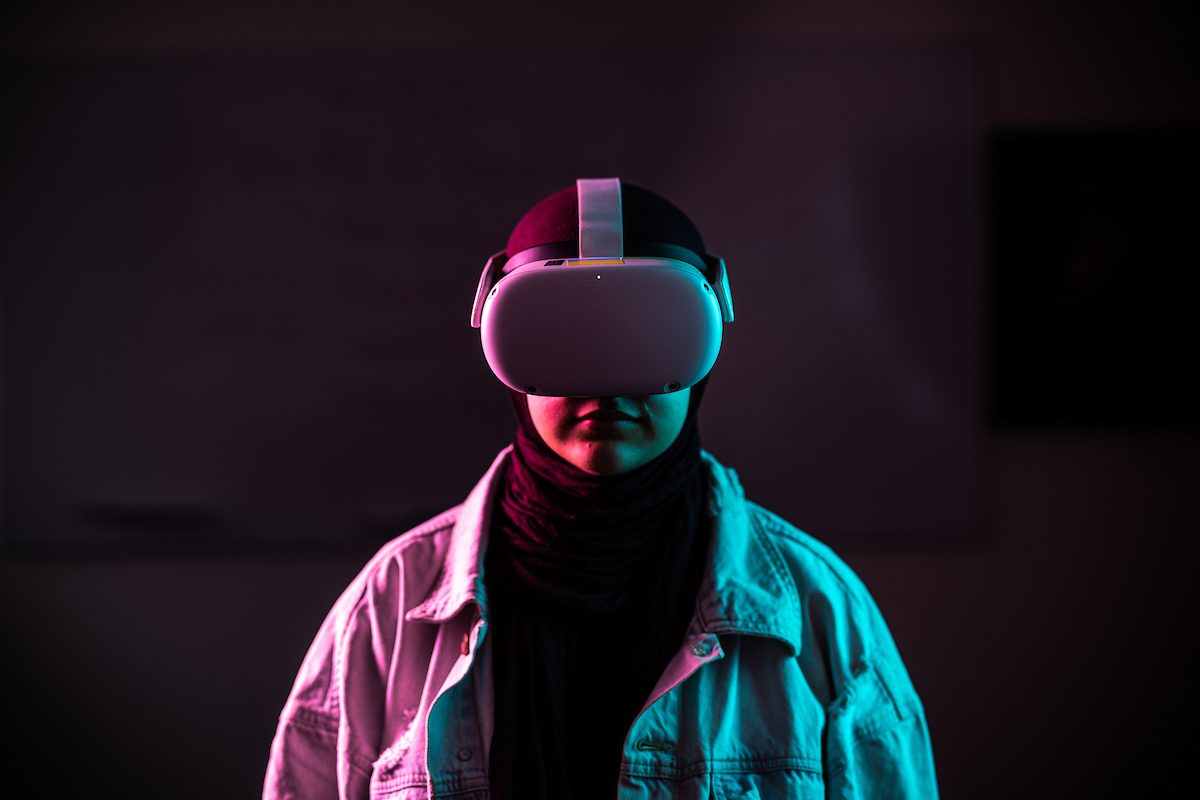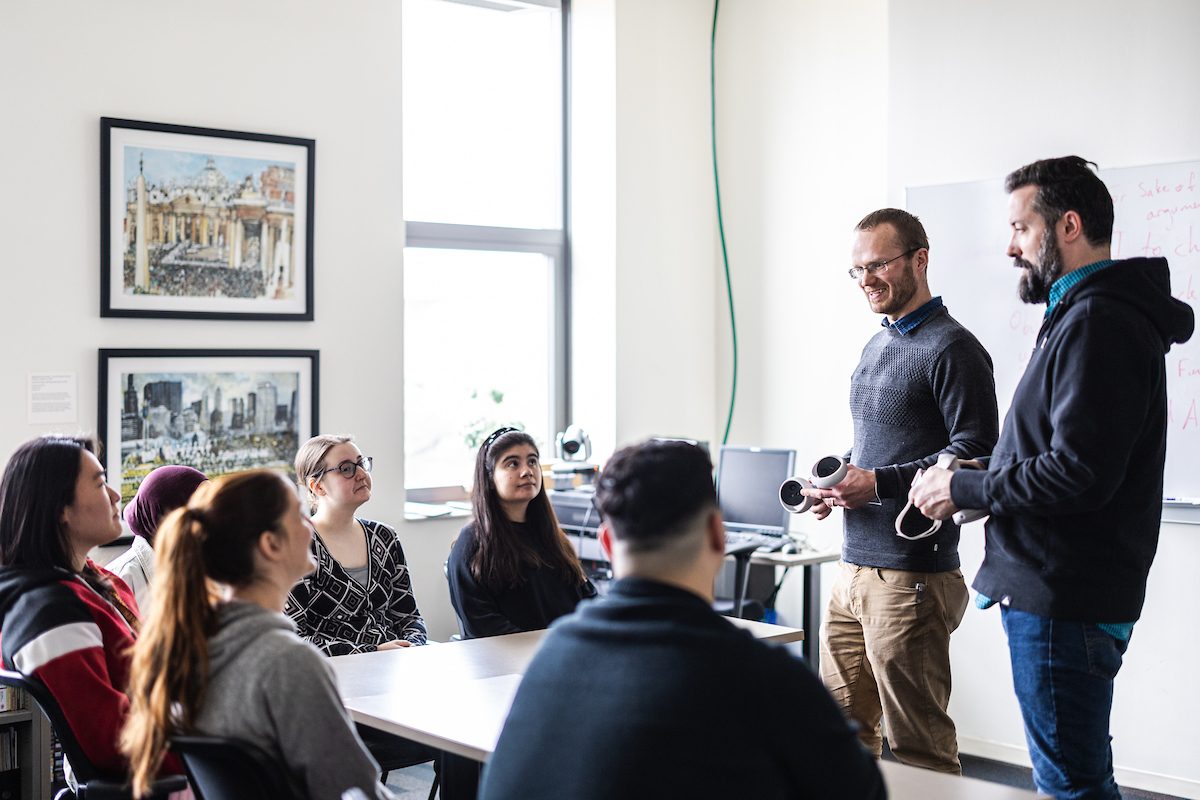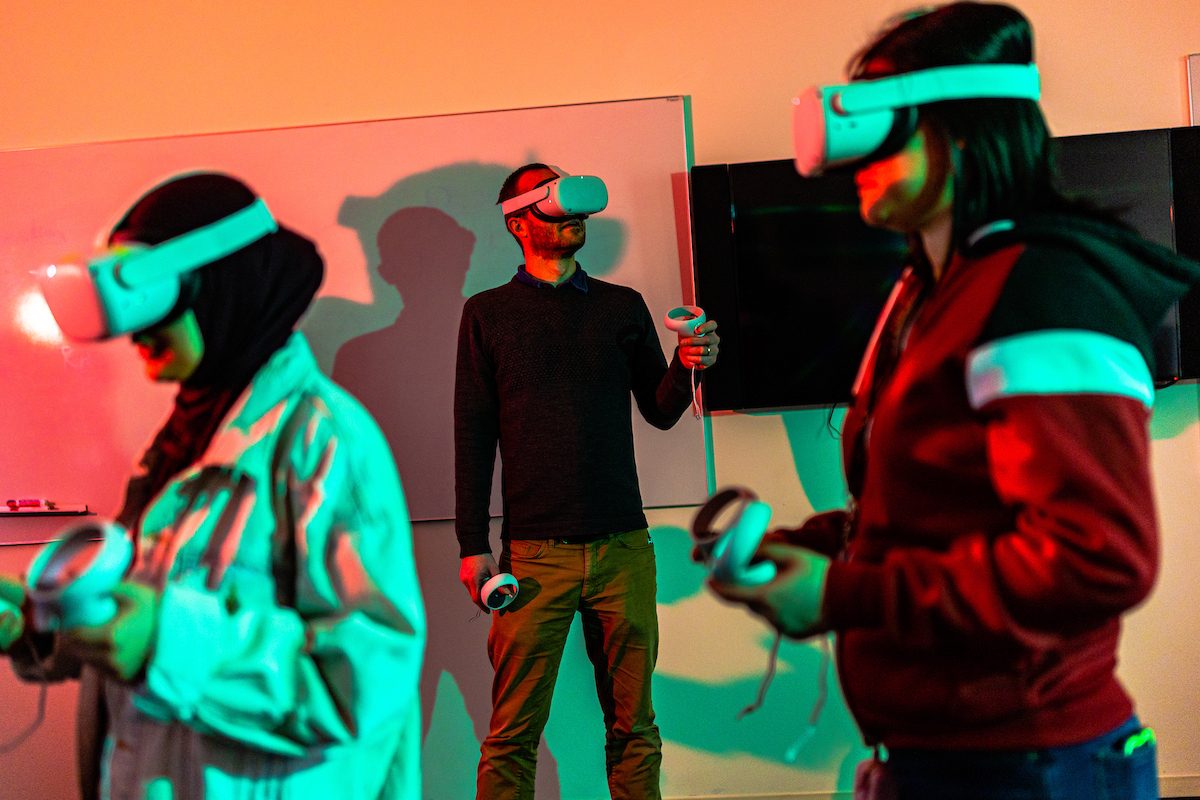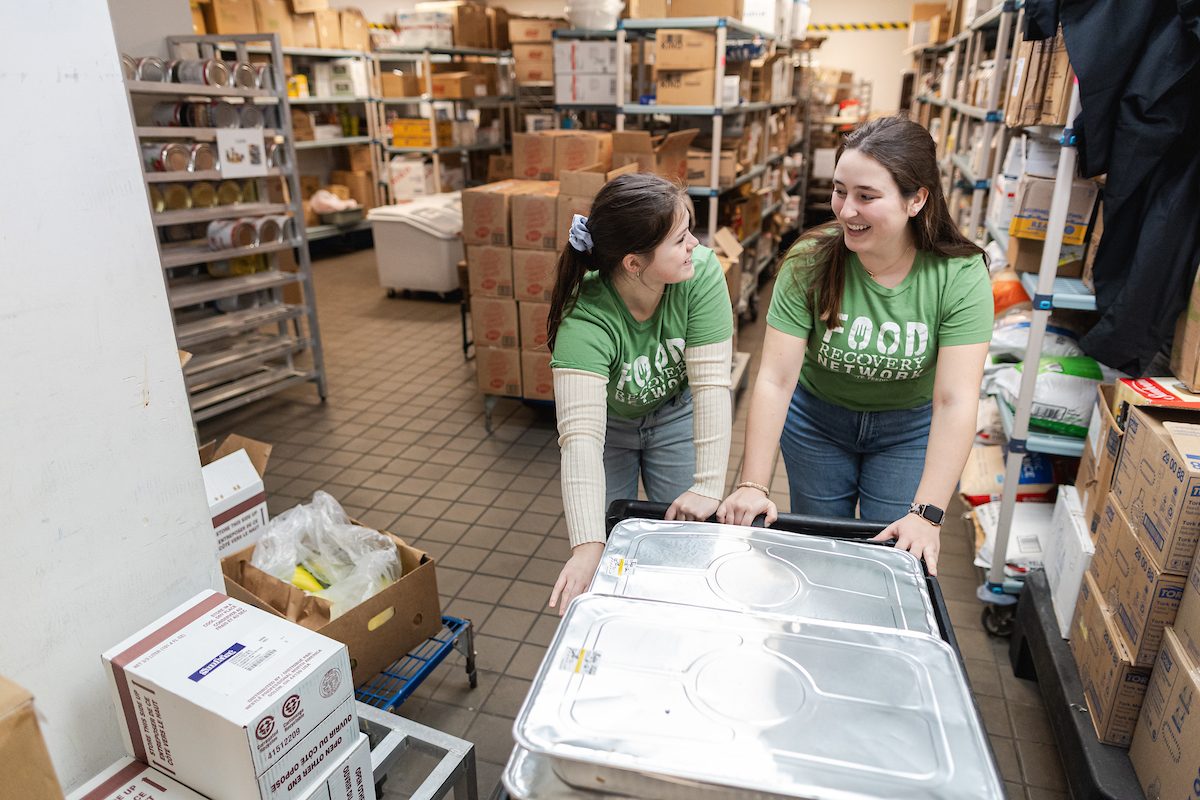Intersection of science and religion prepares students for the future

Virtual reality (VR) and artificial intelligence (AI) are changing the way we learn, work, and interact. As these technological possibilities rapidly expand, so do existential questions. How do we envision the future of life on earth? And how do we prepare our students to meet the inevitable challenges?
We turn to the experts.
Enter an unlikely pair of Loyola professors who endeavored to create a course at the crossroads of science and religion. Michael Burns is an associate professor of biology focused on microbiome and cancer research. And Joseph Vukov is an associate professor of philosophy focused on the relationship between the mind, science, and faith. Together they built Philosophy and Biology for the Future.
“At the core, we’re both educators who saw the need to teach our students about near-future issues where we will have to make decisions about what our society and community will look like,” says Burns.
Philosophy and Biology for the Future is an engaged learning course focused on emerging technologies that present existential challenges to humanity and how to tackle these problems from both philosophical and biological perspectives. The goal of the course, launched in the fall of 2021, is to help students understand and envision the future of life on earth through the intersecting lens of the biological sciences, ethics, and faith.
“We’re teaching in one classroom at the same time. I’m a biology professor teaching a philosophy course and vice versa,” Burns adds.

In 2022, the duo turned their focus to VR. “At the time, the hot topic was immersive tech, like artificial reality (AR), virtual reality, and the metaverse,” explains Burns. “It’s growing exponentially.”
Although the metaverse—a term originally coined by science fiction writer Neal Stephenson that now describes the immersive, three-dimensional virtual world accessed via VR and AR headsets—is still in its early stages, the possibilities are rapidly expanding.
While corporations and technology firms figure out how to best commercialize AR and VR through gaming and shopping experiences, Burns and Vukov introduced their students to a different side of the metaverse—one that is more concerned with uniting humans rather than tapping into their wallets.
“It’s all well and good just to discuss VR at a high level, but we see the value of learning by doing. We got the students plugged in with headsets and met for class in the metaverse that day,” says Vukov. “This space allowed students to discuss the technology as they used it. How does the headset work? Is it accessible or comfortable to use? What kind of psychological headspace does it put the user in?”
Topics of the course ranged from design to accessibility to church. Yes, there are religious communities that use headsets to worship together in the metaverse. “Students met with members of an interfaith VR church,” says Vukov. “Afterwards, we asked them to reflect on the experience. Is VR good for building community? Is it better than real life? What opportunities or outlets does it provide for people who aren’t able to physically participate in society, such as those with health issues?
“This course speaks to something distinct and unique about Loyola. Our students and faculty go out and embrace the community. We’re in dialogue with communities as we learn.”
By the end of Burns and Vukov’s first course, ChatGPT, a natural language processing tool and generative AI chatbot, was published and made available to beta testers. After testing ChatGPT for themselves, it was decided: The next course would incorporate AI.
“First, we looked at the technology on my side of things. What is it and how does it work?” explains Burns. “Like the VR headsets, we had students log on and play around with it. Then, we had the students ask the model whether it was okay to use it for assignments for school and write a reflection on its answer.”

Understanding ChatGPT’s algorithm and how it’s trained is essential for students to predict what it is (or isn’t) capable of. Burns leans into this technology, using it as a framework to talk about biology.
“The way these machine learning models are created and trained is lifted directly from evolutionary biology and neuroscience. That means we can use what I know as a biologist to help our students understand this complicated AI,” says Burns. “You get what you select for when training models. Just like natural selection, if you favor a certain trait, you’ll see that trait emerge.”
ChatGPT’s model, for example, favors human-like language. But what it doesn’t yet favor is generating accurate language or critical thinking.
“For well documented, non-contentious topics, it will spit out truth,” Burns concedes. “But when you push the model further into the weeds, like conspiracy theories, it can get crazy. It will make things up just so it can provide you with an answer.”
In the weeds is where Vukov shines. “That’s why we look at the ethics. Is there bias in how it’s trained, resulting in bias in what is produced? Does it cheat or plagiarize? What is good versus poor use? What is it helping with? What is it taking from us? And what does authentic creativity look like?”
In addition to ethics, Vukov leaned into his expertise in Catholic intellectual heritage to challenge his students.
“If the Catholic tradition believes that humans have a bodily presence, what do AI and VR mean for human dignity? How does it impact or lead us to ask new questions about what it means to be human?”
It’s on this very topic that Vukov and Burns have contributed to conversations for America Magazine, Fox News, and Loyola’s Hank Center for the Catholic Intellectual Heritage’s Nexus, bridging the divide between science and spirituality with existential conversations on life, death, and everything in between.
By the end of the fall semester students largely concluded that while AI and VR are not intrinsically good, they are here to stay. The real question then is, how do we use this technology in the right way—and in the interest of humanity?
Burns and Vukov will continue to help students answer questions like these. The two were awarded the Humanities Connections grant from the National Endowment for the Humanities, which will provide funding over the next two years to hone their coteaching approach to bridging the humanities and STEM in the classroom and help Ramblers envision the future.
